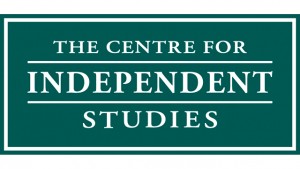Home » Commentary » Media Release » New CIS research: The three priorities for cutting income tax
· MEDIA RELEASE
 The government should deliver income tax relief in the Budget, but it’s not clear they can afford to make real cuts, according to the latest research from the Centre for Independent Studies.
The government should deliver income tax relief in the Budget, but it’s not clear they can afford to make real cuts, according to the latest research from the Centre for Independent Studies.
In the CIS policy paper Cutting income tax: can we add the bacon to ‘hamburger and milkshake’ cuts? economist Robert Carling outlines the best solutions for personal income tax reform in the upcoming Budget.
“The government has made it clear there will be personal income tax cuts in the budget, but we don’t know what form they will take, when they will take effect, or how big they will be,” Mr Carling said.
“After the anticipation, a ‘hamburger and milkshake’ cut would be a disappointment, but adding the bacon would cost a lot — so the government must show it has revenue to spare to go that far.”
As for the form of the cuts, Mr Carling said the most disappointing would be to do what governments have often done in the past — namely, make a few one-off adjustments to bracket thresholds.
“These cosmetic changes would merely hand back some of the proceeds of past bracket creep, yet ensuring bracket creep kept raising the tax burden by stealth in the future,” he said.
“Whatever budget scope the government has to cut taxes, the first priority should be to put in place a system of automatic annual indexation of bracket thresholds. This would solve the problem of bracket creep once and for all.
“The second priority should be to cut marginal rates. Such large cuts are needed that they can’t be completed in one budget, but the government can at least make a start – and a good place to start would be putting the 32.5% marginal rate (which applies to middle incomes) back to 30%, where it used to be.
“The third priority should be to increase the $37,000 threshold (before it starts to be indexed). This threshold has been lifted much less than the other thresholds over the long term, and the minimum wage is now approaching it.”
Mr Carling said the recent mid-year budget update showed there was little scope for tax cuts in the next few years if the government wants to reach a budget surplus by 2020-21.
“If there are to be significant income tax cuts in the budget, something needs to have changed since the mid-year update. Either they’re getting a lot more revenue, or spending a lot less — or both.And to make room for sustainable tax cuts, the improvement would have to carry through to later years.”
Robert Carling is a Senior Fellow at the Centre for Independent Studies, a former state and federal Treasury official, and has held positions at the World Bank and International Monetary Fund.
New CIS research: The three priorities for cutting income tax